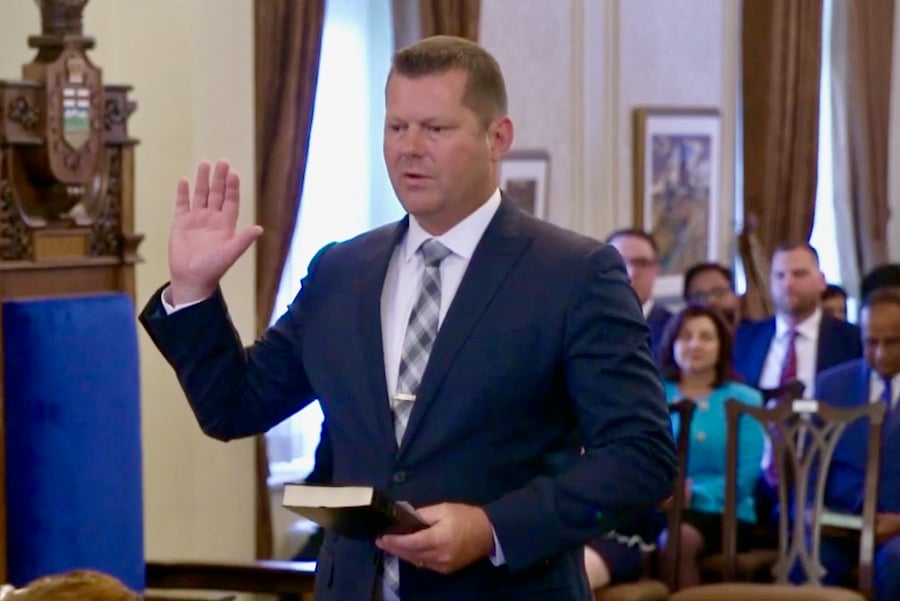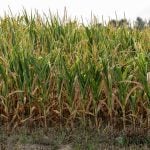The federal government plans to legislate one less step in the approval process for Prairie wheat and barley growers’ initial, interim and final payments through the Canadian Wheat Board.
The move is one of two found in a CWB-related bill the government introduced Friday in the House of Commons. The other, far less surprising, is its move to legislate changes for the voters’ list for elections to the CWB’s farmer-controlled board of directors.
“This legislation will streamline the process required to pay farmers for their top-quality grain to help make sure pay cheques hit mailboxes as quickly as possible,” Agriculture Minister Gerry Ritz said Friday.
Read Also

Sigurdson applauds Alberta farmers
With Alberta’s harvest virtually wrapped up for 2025, provincial Agriculture Minister RJ Sigurdson offered the government’s congratulations to the province’s farmers.
“This legislation will also make sure board members are elected by farmers who are actually involved in producing at least 40 tonnes of grain.”
“Frustrated”
The levels of the per-tonne initial, interim and final payments issued to farmers by the CWB for board grains first require approval from the federal government, the guarantor of the initial payment.
But government approval, in turn, currently requires analysis from the federal agriculture and finance departments, plus approval from the federal Treasury Board.
The bill introduced Friday could speed up the payment process by “as much as three weeks,” as it yanks the requirement for Treasury Board approval, the government said.
“Farmers expect that their payments will be approved and received with little delay, but have been frustrated in the past,” Doug Robertson, president of the Grain Growers of Canada, said in a separate release.
“Procedural reform for the payment approval process is long overdue.”
Director elections
The government’s new bill also confirms that Prairie farmers who grow at least 40 tonnes of grain, or who are entitled to 40 tonnes under a crop-share arrangement, will be eligible to vote in elections for the 10 farmer-elected members of the CWB’s board of directors.
The government said the new approach is based on recommendations from its CWB Election Review Panel in 2005, and from the CWB itself.
Immediate opinions on the new bill among farm groups has so far broken more or less neatly along well-dug lines. Ritz “claims his legislation is based on panel recommendations, but in very significant ways, it is not,” National Farmers Union president Terry Boehm said.
“What the minister is doing here is analogous to excluding some smaller cattle farmers from voting in cattle association ballots, but allowing hog farmers to vote.”
However, Boehm added in an NFU release Friday, while the 2005 review panel “certainly got some things wrong… they were right in recommending that voting be limited to those who actually deliver grain to the CWB.”
The bill’s provisions on the CWB voters’ list “would ensure that only producers who actually rely on grain sales for a living will determine the future of their marketing organization,” the GGC’s Robertson said Friday.
“Artificial classes”
“Having credible elections will be an excellent step in the right direction to ease the concerns and allegations we have seen from all sides in the past about the fairness of the voters list,” he said. “A large majority of farmers want this, farm organizations want this, and the CWB has said it wants this.”
But Stewart Wells, a Saskatchewan organic grower and member of the group Friends of the CWB, said that section of the bill aims to “divide the farmers by creating artificial classes of producers and permanently taking the vote away from thousands of them.”
Crop-share landowners and others who deliver wheat or barley to the CWB should be automatically entitled to vote, as their deliveries pay the costs of the board’s operations, the group said.
But the bill also “entrenches a system to automatically provide a vote to producers that do not deliver grain to the CWB, and are, therefore, not paying the costs of CWB operations,” southern Manitoba farmer and FCWB member Butch Harder said in the FCWB’s release Friday.
Boehm also pointed out that “the Commons’ agriculture committee recently toured Canada asking how Ottawa can encourage young people to enter farming. Most young farmers and new farmers start out as small farmers. Today, Minister Ritz took away the right of those farmers to vote in CWB elections.”
The GGC also pointed out Friday that for the bill’s election reforms to take effect for this fall, the legislation must be passed before summer break.
“This will only happen with the full co-operation of all parties to ensure the bill passes the House of Commons in short order,” the group said.
















